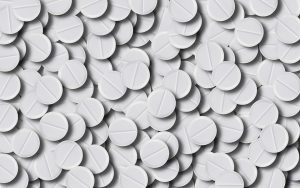There are estimated to be 49,370 people (PDF, 4.08MB) in Wales aged 15-64 using opioids, cocaine and crack, amphetamine and new psychoactive substances. In 2016, 20% of adults (PDF, 4.08MB) said they drink over the weekly alcohol guidelines.
According to the latest statistics overall demand for substance misuse services is not increasing. Recent data from the Welsh National Database for Substance Misuse suggest a reduction in 2016-17 in the number of people accessing assessment and treatment for substance misuse. However, there was an increase in the number of drug related deaths in 2016-17.
This blog post provides a brief overview of recent trends in the use of substance misuse services in Wales and policy responses to them reported in the Welsh Government’s Substance Misuse Annual Report and Forward Look 2017.
Referrals, assessments and treatment
There were 23,848 referrals to the Welsh National Database for Substance Misuse in 2016-17, 2.3% fewer than in 2015-16.
Of the 18,279 people who were subsequently assessed, alcohol was the main problematic substance for 52.6% and drugs for 46.7%, although drugs and alcohol in combination were the main problem for a minority of referrals.
Heroin accounted for 18.4% of all referrals, cannabis for 11%, cocaine accounted for 3.4%, methadone for 2.9% and amphetamines for 2.8% of all referrals.
Males comprised 62.5% of alcohol referrals and 71.5% of drug referrals.
Treatment outcomes
The number of people starting treatment in 2016-17 was down by 4.6% on the previous year to 16,406 and indicators suggest a steady improvement in outcomes for people seeking help. A key performance indicator (KPI 3), Misuse of problematic substance reduced shows that the proportion of individuals reporting a reduction has gradually increased in each of the last 5 years, from 69.2% in 2012-13 to 77% in 2016-17.
The proportion of individuals receiving treatment who reported Quality of Life Improved (KPI 4) has fluctuated but remains higher, at 63.9% in 2016-17, than the 55.3% recorded in 2012-13.
Deaths from substance misuse
Although the trends in substance misuse referrals assessments and treatment are generally positive, other indicators are less encouraging. In 2016 there were 192 deaths from drug misuse - a 14.3% increase, and 504 alcohol deaths - an 8.9% increase.
Reversing the increase in drug related deaths is highlighted as a top priority for the next 12 months in the Substance Misuse Annual Report and Forward Look 2017.
Older people
There is also concern about substance misuse amongst older people. In March 2017 the independent Advisory Panel on Substance Misuse published Substance Misuse in an Ageing Population which reported that Wales’ growing older population is more likely to need substance misuse services than earlier generations; over 50s are the only group from which referrals to substance misuse services are increasing. The report concluded that substance misuse services need to be better adapted to meet the needs of older adults, and provide more specialist services for them. The Welsh Government says that it is taking forward the Panel’s recommendations (PDF, 4.08MB).
Alcohol misuse
The Welsh Government intends that its work on reducing alcohol misuse will be underpinned by Public Health (Minimum Price for Alcohol) (Wales) (Bill) which was introduced on 23 October 2017. The Bill aims to reduce alcohol consumption, particularly amongst ‘harmful and hazardous’ drinkers, defined as men who consume 21-50 alcohol units per week and women who consume 14-35 units per week.
Substance misuse strategy
Last year the Welsh Government published a new Substance Misuse Delivery Plan Working together to reduce harm: Delivery plan 2016 – 2018 which set out plans to tackle the impact of substance misuse in Wales for the remaining 2 years of the Substance Misuse Strategy for Wales (2008-18) . In addition to tackling misuse of alcohol and illegal drugs, the Delivery Plan seeks to address problems caused by the misuse of image and performance enhancing drugs (IPEDs), new psychoactive substances (NPSs), and medicines.
Article by Steve Boyce, National Assembly for Wales Research Service







